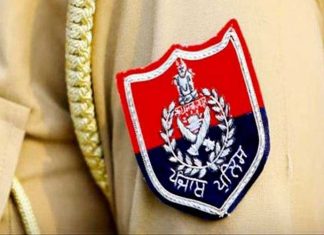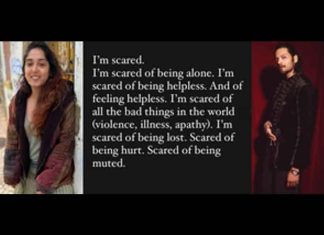New Delhi, March 4, 2020 –
The Coronavirus outbreak, that originated in Wuhan, China and has now entered multiple countries, including India, has had thousands dead and even more infected. Here are some frequently asked questions (FAQs) about the virus, its spread and safety tips.
What is the coronavirus and what are its symptoms?
Coronaviruses (CoV) are a large family of viruses that cause illnesses ranging from the common cold to more severe diseases such as Severe Acute Respiratory Distress syndrome.
Whenever you have a fever, cough and difficulty breathing it’s important to seek medical attention promptly as this may be due to a bacterial infection, viral infection, allergy or some serious respiratory infection. If you or your known has a travel history to China and you have above symptoms 2019-nCoV could be one of the causes.
Common signs of infection include respiratory symptoms, fever, cough, shortness of breath and breathing difficulties. In more severe cases, infection can cause pneumonia, severe acute respiratory syndrome, kidney failure and even death.
Where do Coronaviruses come from?
A novel Coronavirus is a new strain that has not been previously identified in humans has been reported from December 31, initially from Wuhan China and is spreading worldwide now. How humans acquired this virus is not confirmed as yet. Some studies indicate that it would have come from bats, others indicate some other animals like cats, camels or even snakes being the animal source.
How does the Coronavirus spread?
Coronaviruses are zoonotic viruses, meaning they are transmitted between animals and people. Several known coronaviruses are circulating in animals that have not yet infected humans. Hence, hand hygiene is a very essential component of preventing the infection.
Maintain at least a metre (three feet) distance between yourself and other people, particularly those who are coughing, sneezing and have a fever.
ALSO READ:
25 positive cases of coronavirus in India: Health Minister Harsh Vardhan
ALSO READ:
Coronavirus: 7 districts on high alert after Italian couple tests positive in Jaipur
ALSO READ:
Robert Vadra offers tips on preventing Coronavirus spread
ALSO READ:
Sensex slumps 700 points on coronavirus fears
ALSO READ:
Coronavirus to hit revenues, we’re prepared: MakeMyTrip CEO Deep Kalra
ALSO READ:
Amazon Web Services cancels Mumbai Summit due to coronavirus concerns
ALSO READ:
Coronavirus: Contingency plan envisages closure of movement at Kartarpur, Wagah
ALSO READ:
Coronavirus scare: Gujarat tightens screening at Airports
ALSO READ:
Coronavirus hits Amazon Seattle HQ, 1 employee quarantined
ALSO READ:
COVID-19: Amul posts ad, calls for cleanliness
ALSO READ:
COVID-19 slower than flu but more dangerous: WHO
ALSO READ:
India to set up lab in Iran for testing COVID-19
ALSO READ:
COVID-19: Face mask ads banned for misleading claims
ALSO READ:
COVID-19: World Bank pledges $12bn in emergency aid
ALSO READ:
South Korea’s COVID-19 cases reach 5,328
What is the best way to protect yourself from Coronavirus?
Washing your hands with an antiseptic hand wash like Savlon and water kills the virus if it is on your hands. Hands come in contact with various surfaces and if we touch that hand on face or bring it close to nose we can acquire the virus.
Avoid close contact with anyone showing symptoms of respiratory illnesses such as coughing and sneezing. When someone coughs or sneezes they secrete small droplets containing the virus. If you are too close, you can breathe in the virus.
Hence, the distance can help your chance of acquiring and avoiding public places. Hands touch many surfaces which can be contaminated with the virus. If you touch your eyes, nose or mouth with your contaminated hands, you can transfer the virus from the surface to yourself.
Standard recommendations to prevent infection spread include regular hand washing, covering mouth and nose when coughing and sneezing, and thoroughly cooking meat and eggs.
How dangerous is it?
As with other respiratory illnesses, infection with 2019-nCoV can cause mild symptoms including runny nose, sore throat, cough, and fever. It can be more severe for some people and can lead to pneumonia or breathing difficulties. More rarely, the disease can be fatal. Older people, and people with pre-existing medical conditions (such as, diabetes and heart disease) appear to be more vulnerable to becoming severely ill with the virus.
Can the 2019-nCoV be transmitted from person to person?
Yes, the 2019-nCoV causes respiratory disease and can be transmitted from person to person, usually after close contact with an infected patient, for example, in a household workplace, or health care centre.
According to Dr Sachin Verma, a leading healthcare practitioner, the best way to safeguard yourself from a possible case of nCoV is to keep hygiene in mind. He suggests: “Wash your hands and/or sanitise them as frequently as possible.
Make sure to maintain a distance from a person who is showing symptoms such as sneezing, coughing, flu etc. Recent cases have shown patients to demonstrate abdominal pain as a symptom. Keep an eye out for this. Check with a medical practitioner immediately in case you find yourself unwell or demonstrating any of the known symptoms.”




































































